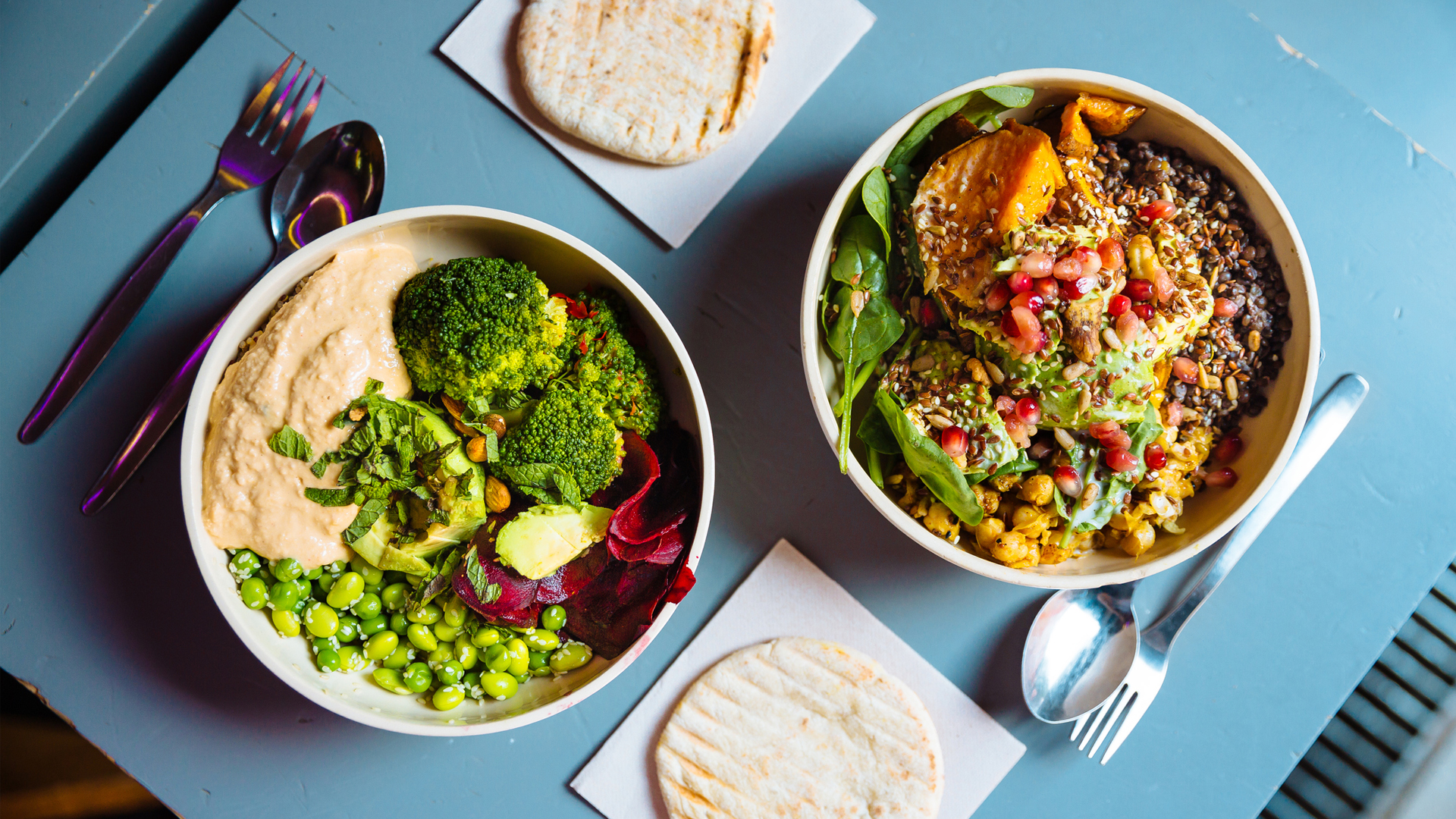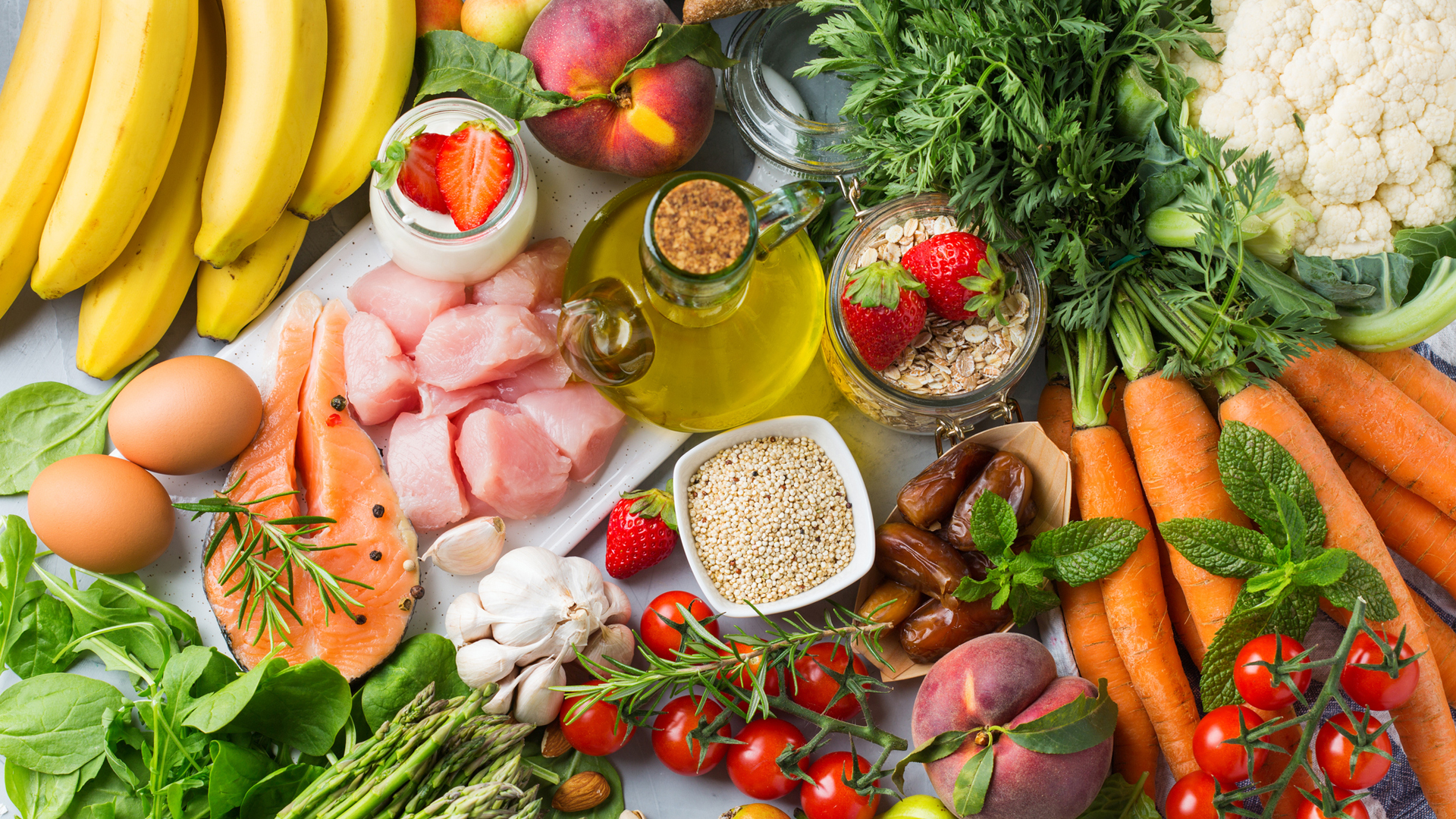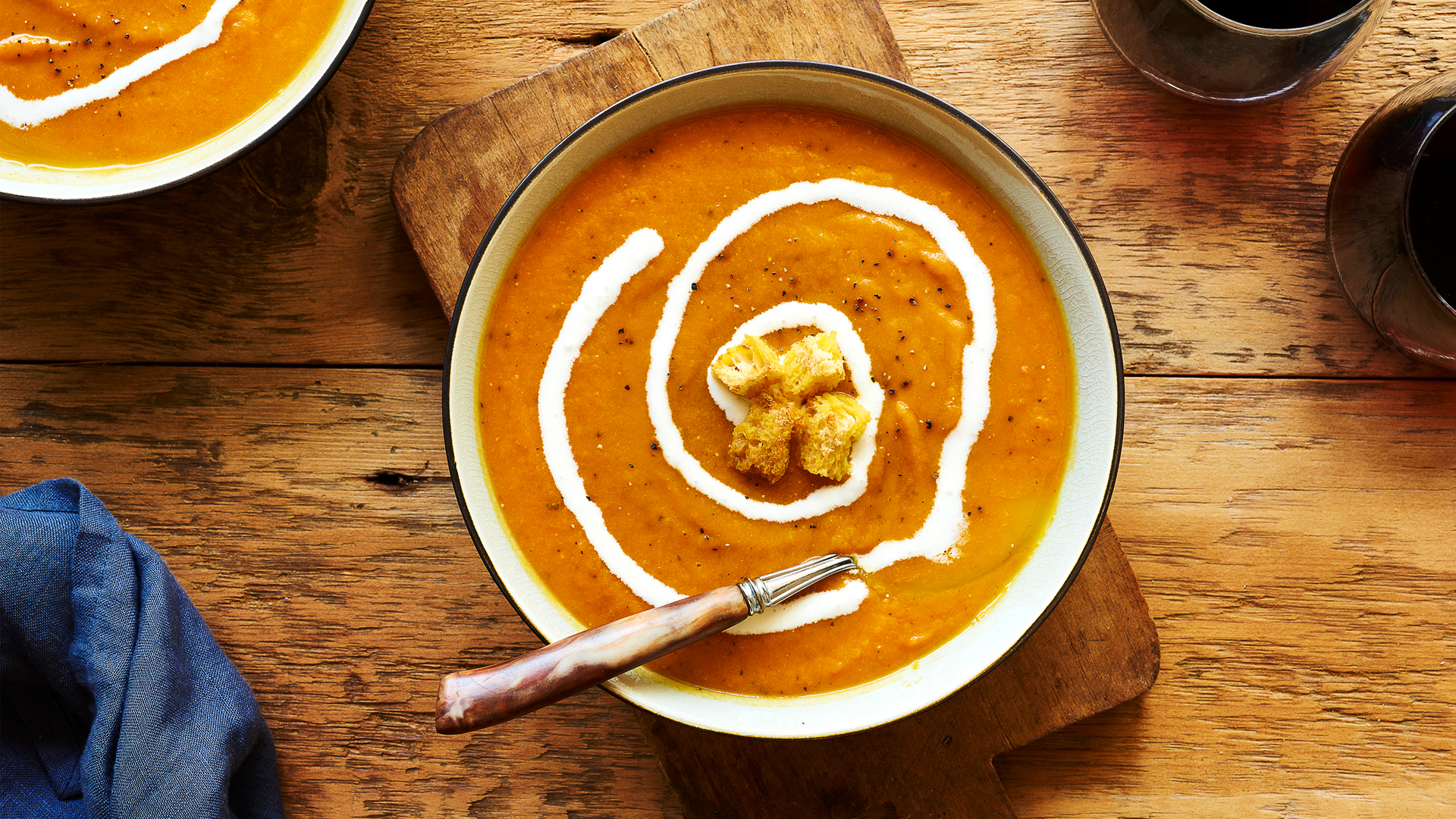4 types of vegetarian diets
Want to eat less meat? Here are the four most popular types of vegetarian diets

Get the world’s most fascinating discoveries delivered straight to your inbox.
You are now subscribed
Your newsletter sign-up was successful
Want to add more newsletters?

Delivered Daily
Daily Newsletter
Sign up for the latest discoveries, groundbreaking research and fascinating breakthroughs that impact you and the wider world direct to your inbox.

Once a week
Life's Little Mysteries
Feed your curiosity with an exclusive mystery every week, solved with science and delivered direct to your inbox before it's seen anywhere else.

Once a week
How It Works
Sign up to our free science & technology newsletter for your weekly fix of fascinating articles, quick quizzes, amazing images, and more

Delivered daily
Space.com Newsletter
Breaking space news, the latest updates on rocket launches, skywatching events and more!

Once a month
Watch This Space
Sign up to our monthly entertainment newsletter to keep up with all our coverage of the latest sci-fi and space movies, tv shows, games and books.

Once a week
Night Sky This Week
Discover this week's must-see night sky events, moon phases, and stunning astrophotos. Sign up for our skywatching newsletter and explore the universe with us!
Join the club
Get full access to premium articles, exclusive features and a growing list of member rewards.
Choosing a vegetarian diet is a lifestyle choice that can offer numerous health, environmental and financial benefits, but in-depth research is required before adopting this diet. According to a 2018 Gallup poll, 5% of U.S. adults consider themselves to be vegetarian with non-white American respondents three times more likely than white Americans to adopt this diet. A higher proportion of younger Americans (18 to 34) identified as vegetarian than older respondents (55+).
There are approximately seven types of vegetarian diets: flexitarian, pescatarian, lacto-ovo vegetarian, lacto vegetarian, ovo vegetarian, pollo vegetarian and vegan. Insofar as ranking these diets in restrictiveness, flexitarianism includes all meat and animal products whereas these are completely absent in veganism, meaning you may need to turn to the best multivitamins for women to make up any nutritional shortfalls.
Here, we’ll focus on the most popular vegetarian diets which are flexitarian, pescatarian, lacto-ovo vegetarian and veganism. We will analyze the benefits and potential drawbacks and help you determine which diet may be suitable for you. However, it is best to consult a doctor or dietician before changing your dietary habits, especially if you suffer from allergies or underlying health conditions.
Flexitarian
Flexitarianism or semi-vegetarian diet (SVD) is a type of vegetarian diet that has the least number of restrictions as, although you mostly consume vegetarian or vegan food, you occasionally make allowances for meat and fish. U.S. dietitian Dawn Jackson Blatner has been credited with coining this term after the release of her 2008 book The Flexitarian Diet. U.S. News has ranked the flexitarian diet as 2nd out of the 40 best diets in America today.
Research in Frontiers in Nutrition has found strong evidence that flexitarian/SVDs could help consumers achieve weight loss and provide metabolic health benefits such as reduced diabetes risk and blood pressure. Another study in Clinical Nutrition Research found that SVD post-menopausal women had significantly lower BMI (Body Mass Index) and BFP (Body Fat Percentage).
However, with all diets, there are potential downsides. Research on SVD Australian women found higher rates of iron deficiency and anemia than non-SVD participants. Other research found that SVD participants had a lower daily calorie intake than other dietary profiles. To ameliorate these issues, SVD adopters may wish to consider increasing their intake of iron-rich plant-based foods such as spinach and kale, or alternatively moderate consumption of red meat can as part of a balanced diet.

- Related: Which vegetables are high in iron?
Pescatarian diet
A pescatarian diet is a vegetarian diet that makes allowances for fish and other seafood at whatever level of consumption. Research in the Public Health Nutrition Journal has found associated health benefits with this dietary profile such as the reduced prevalence of hypertension and blood pressure.
Get the world’s most fascinating discoveries delivered straight to your inbox.
Nevertheless, caution must be taken with the type of seafood consumed as some may contain the highly toxic element methylmercury (MeHg). This element can cross the blood-brain barrier and accumulate in the brain where it can then damage the central nervous system. Predatory and long-living fish species such as tuna, swordfish and shark are known to contain higher traces of this element.

Lacto-ovo vegetarian diet
A lacto-ovo vegetarian diet avoids meat, poultry and fish but makes allowances for eggs and dairy products. Research in the Journal of Metabolic Diseases has found those with non-alcoholic fatty liver disease who adopted a lacto-ovo diet over a standard weight-loss diet (encompassing all sources of food) experienced reduced weight loss, waist circumference and blood pressure.
Other research has found people with a lacto-ovo diet (as well as other vegetarian diets) had a lower mortality rate from causes such as cardiovascular disease, diabetes and renal disorders. As with other vegetarian diets, it is important to ensure that chosen foods are nutrition-rich as research in the British Journal of Nutrition has suggested those who adopt a lacto-ovo vegetarian diet may suffer from vitamin B12 (cobalamin) deficiency which is needed for the development and function of the central nervous system as well as red blood cell formation.

Vegan diet
The vegan diet is the most restrictive of all vegetarian diets as it is entirely plant-based. Research in the Nutrients journal has concluded that a vegan diet is the healthiest but did discover that calorie and calcium intake were the lowest which were below national dietary recommendations. In addition to this, other research has suggested vegan diets provide added protection against obesity, hypertension and cardiovascular mortality.
Despite these health benefits, vegan diets may lack vitamin B12, which can lead to pernicious anaemia, though this is rare and can be mitigated by eating vitamin B12-enriched foods such as mushrooms, algae and cereals.

- Read more: Do vegans live longer than meat eaters?
Which type of vegetarian diet is right for you?
Choosing the right type of vegetarian diet for you is mostly trial-and-error, but it should also require consultation with a healthcare professional, especially if you suffer from allergies or an underlying health condition. With all dietary choices, but especially vegetarian diets, it is crucial you are fulfilling the recommended daily nutritional requirements from key sources such as calcium, iron, protein, vitamin B12 and vitamin D.
Aside from health benefits, there may be moral considerations in choosing a vegetarian diet, as meat consumption involves greater greenhouse gas emissions, water pollution and scarcity as well as a greater risk of zoonotic diseases thriving.
Another important consideration is cost control, as meat diets are typically more expensive than plant-based ones. This sentiment was echoed by Dr Marco Springmann, a researcher at the Oxford Martin Programme on the Future of Food. “Any of the healthy and sustainable dietary patterns we looked at is a better option for health, the environment, and financially, but development support and progressive food policies are needed to make them both affordable and desirable everywhere.”
This article is for informational purposes only and is not meant to offer medical advice.
Jack Phillips is a freelance content writer and journalist based in London, UK. He has an undergraduate degree in politics and is currently working on a post-graduate diploma in law. He frequently writes SEO content and researches fitness, health, nutrition and lifestyle features. In the future, he hopes to combine his interests in law and health and work with emerging health technologies to shape health policies.
 Live Science Plus
Live Science Plus










